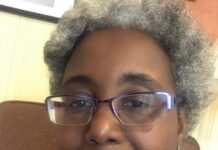 A new report by researchers at several universities has found that people generally have a “bias blind spot.” Researchers found that almost everyone believes that they are less biased than they actually are.
A new report by researchers at several universities has found that people generally have a “bias blind spot.” Researchers found that almost everyone believes that they are less biased than they actually are.
Erin McCormick, a Ph.D. student at Carnegie Mellon University in Pittsburgh and a co-author of the study, offers the following explanation of the bias blind spot: “When physicians receive gifts from pharmaceutical companies, they may claim that the gifts do not affect their decisions about what medicine to prescribe because they have no memory of the gifts biasing their prescriptions. However, if you ask them whether a gift might unconsciously bias the decisions of other physicians, most will agree that other physicians are unconsciously biased by the gifts, while continuing to believe that their own decisions are not. This disparity is the bias blind spot, and occurs for everyone, for many different types of judgments and decisions.”
The results of the study found that only one of the 661 participants who were surveyed said they were more biased than the average person. Carey Morewedge, an associate professor of marketing at Boston University and co-author of the study, said that “people seem to have no idea how biased they are. Everyone thinks that they are less biased than their peers.” Furthermore, Dr. Morwedge reports that the study found that “this susceptibility to the bias blind spot appears to be pervasive, and is unrelated to people’s intelligence, self-esteem, and actual ability to make unbiased judgments and decisions.”
The research, “Bias Blind Spot: Structure, Measurement, and Consequences,” was published in the journal Management Science. It may be downloaded by clicking here.












